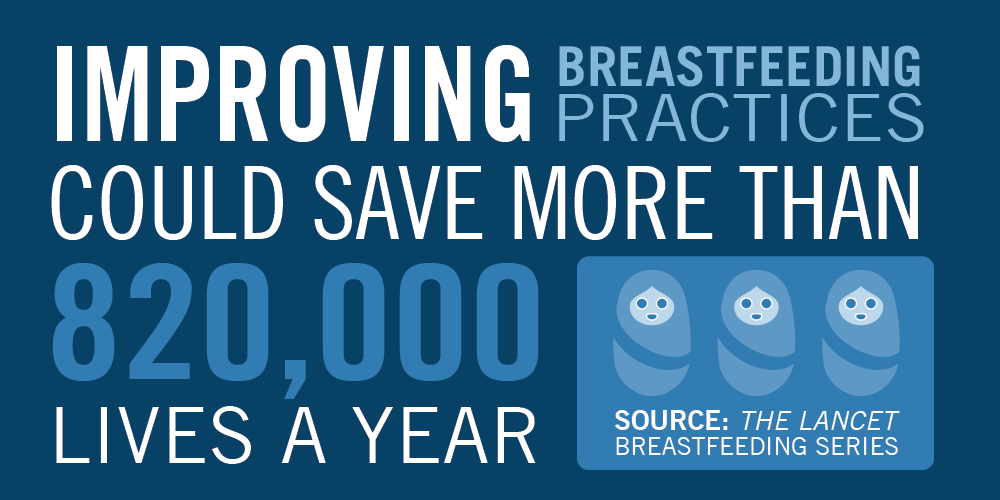Breastfeeding: a must do
William Chilufya
In 2013, while on a radio discussion during World Breastfeeding Week, a lady called describing her experience as a mother in full time employment. She encouraged other mothers to ensure they exclusively breastfeed their children. To drive her point home, she used the phrase “limit relying on a cow to feed your children”.
About the author: William Chilufya is a civil society advocate for good nutrition and Country Coordinator for Zambia Civil Society Scaling Up Nutrition Alliance (CSO-SUN).
This article was originally published by the Daily Mail.
In 2013, while on a radio discussion during World Breastfeeding Week, a lady called describing her experience as a mother in full time employment. She encouraged other mothers to ensure they exclusively breastfeed their children. To drive her point home, she used the phrase “limit relying on a cow to feed your children”. I thought the phrasing was a powerful message, particularly coming from a working mum who has survived the challenges that come with work and breastfeeding. I remembered the powerful encouragement that this special mother gave while I followed the launch of a series of papers released on January 28 in The Lancet.
The two papers in this series describe past and current global trends of breastfeeding, its short and long-term health consequences for the mother and child, the impact of investment in breastfeeding, and the determinants of breastfeeding and the effectiveness of promotion interventions. In Zambia, progress is being made as far as breastfeeding. According to the Zambia Demographic Health Survey (ZDHS) 2013/2014, nearly 73 percent of infants were exclusively breastfed between the ages of 0-5 months. This represents a steady percentage increase from 60.9 percent in 2007. However we need to do more to ensure we move forward for every child to be exclusively breastfed.
We have known for many years that breastfeeding changes lives for the better. We understand that it is the best way of providing safe, free and ideal nutrients for healthy growth and development of newborn babies. It provides all the energy and nutrients that infants need in the first six months of life, continues to provide up to half or more of a child’s nutritional needs during the second half of the first year, and up to one third during the second year of life. Among the benefits for the infant, breast milk contains antibodies that help protect infants from common childhood illnesses such as diarrhea and pneumonia, the two primary causes of child mortality worldwide. Babies not exclusively breastfed in the first six months of life are seven times more likely to die from diarrhea, and five times more likely to die from pneumonia compared to infants not exclusively breastfed.
Exclusive breastfeeding for the first six months and continued breastfeeding up to 24 months could potentially reduce child deaths by 13 percent. The benefits however, do not stop at infants; the practice of breastfeeding presents many benefits to the mother as well. The World Health Organisation (WHO) says that the practice of breastfeeding, when done exclusively, is associated with a 98 percent effective method of birth control. We also now have a better understanding of breastfeeding’s significant impact in protecting women from certain types of cancer, including breast and ovarian, and how the duration a woman breastfeeds throughout her lifetime influences risk. Studies show that for each year a mother breastfeeds, her risk of developing invasive breast cancer decreases by six percent.
The latest Lancet Series shares new results on the economic benefits of breastfeeding and notes a correlation between breastfeeding and higher performance on intelligence tests among children and adolescents.The act of breastfeeding, however, is constantly under threat from sub-optimal care practices arising from cultural myths, false claims from advertisers, marketing of infant formula and other breast milk substitutes. The series has highlighted that the marketing of breastmilk substitutes negatively affects breastfeeding, global sales in 2014 of US$44·8 billion show the industry’s large, competitive claim on infant feeding.
This is one of the greatest bottlenecks that undermine our mothers’ confidence and capacity to breastfeed successfully not only in the home, but also in the workplace, ultimately contributing to the high rates of illnesses and deaths among infants. As a country, we must take interest in the latest evidence on breastfeeding and translate into action. We can do more here to get rapid progress in breastfeeding. However, this will require breastfeeding to be protected and supported. The Lancet suggests several social, legislative, and policy actions that tackle the sociocultural, health services, family, and workplace barriers that continue to hinder optimal breastfeeding – these can be seen in our country too.
In terms of supporting and protecting breastfeeding in Zambia, Government needs to have the law on marketing of breast milk substitutes. The suspended Statutory Instrument (SI) No.48 of 2006 ‘The Code of marketing of breast milk Substitutes’ needs urgent attention so that we have a law in place. Without the law on marketing of breastmilk substitute we are attracting marketing practices that threaten breastfeeding in the country.
To get around all this, we need political commitment; it is a precondition to get things done. Political will has been shown to be the single most important factor for improving breastfeeding and infant and young child feeding (IYCF) practices. Without it, there is unlikely to be an overarching approach to promoting breastfeeding, funding, guidance or incentives for health systems and for other partners to implement policies and programmes to support women to breastfeed.
For Zambia political commitment to breastfeeding is demonstrated through Government’s decision to promote, protect and support breastfeeding by having the code of marketing of breast milk substitutes as a national law, with effective monitoring and enforcement. As we celebrate this month of love, let us all remember that we have a role to play to practice and encourage exclusive breastfeeding. Doing this will safeguard the future of our children and nation.
